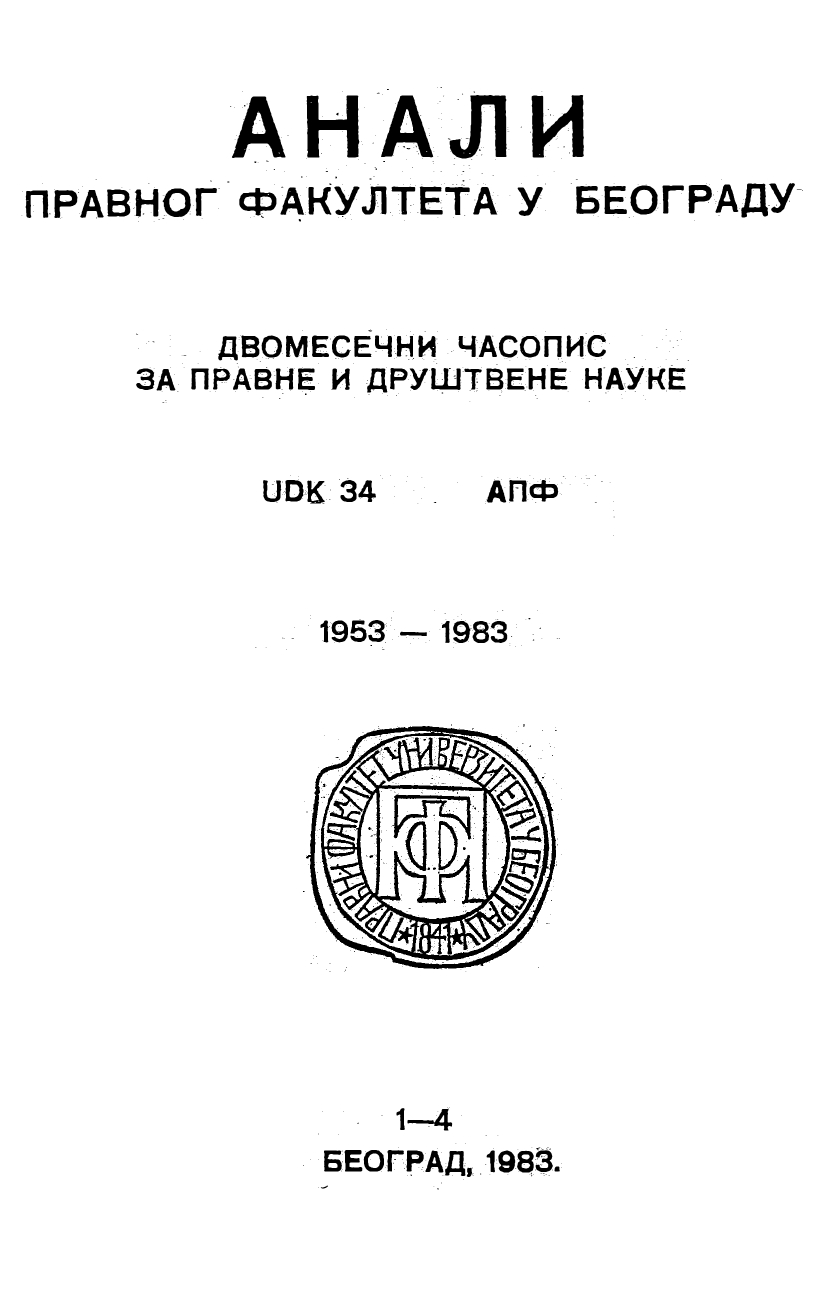ПРИВРЕДНИ УГОВОРИ У СОЦИЈАЛИСТИЧКИМ ЗЕМЉАМА
COMMERCIAL CONTRACTS IN SOCIALIST COUNTRIES
Author(s): Vrleta KruljSubject(s): Law, Constitution, Jurisprudence, Commercial Law
Published by: Правни факултет Универзитета у Београду
Summary/Abstract: In this essay, it is firstly stated that in the laws of the socialist countries of Eastern Europe a commercial contract is a contract pertaining to the socialized economy, therefore, it is a contract by which the process of reproduction in the sphere of the socialized economy is realized, in other, words, that contract comes into being and is realized on the basis and in the process of achievement of the tasks and aims of the social ownership of the means of production. However, there is no uniform view and no uniform concept of that contract in the laws of the socialist countries, there are differences in the definition of commercial contracts and also in regard to its place in legislature and judicial practice i.e. the legal systems of these countries. In the law of the USSR, a number of theoreticians regard these contracts as a separate group of contracts within the civil law. According to them, the general rules on contracts are applicable to commercial contracts as well, which are related to them as a special concept is related to a genus concept (Ioffe and others). In contrast to this civilistic concept, there is the concept of commercial law, refuting the civil law character of these contracts (Pavlov, Laptev). In Polish law, commercial contracts are also not regarded as a separate category of contracts, to which special regulations would be applicable. In Hungarian law, on the other hand, the question of the so-called commercial contracts is regulated by the insertion of an additional category into the Civil Code of 1959, named ,,plan(ned) contracts”. As to the question of commercial contracts in the laws of Czechoslovakia, German Democratic Republic, Romania and Bulgaria, they are in these countries regulated by separate law. It is further stated in the essay that in the countries of the „real socialism” there is an increased tendency or a tendency toward the increase of the role commercial contracts. The commercial contract is no more the „second in importance” to planning, but is on the way to becoming a fullfledged instrument of planning. In this connection, it is more often stated that now the relations between enterprises should not be regarded as purely civil law relations, but contractual relations of a separate nature (sui generis). Finally, the author touches upon the question of commercial contracts in Yugoslavia, and in that connection, the relation(ship) between the commercial contract (Article 25. of the Law of Obligations) and the self-management agreement (determining the individual mutual rights and obligations of the participants and the appropriate share of all the participants in the concurrently earned income and the concurrent bearing of risks). According to the author, there are no legal bars preventing the contractual (parties from freely deciding whether such a contract should be regarded as a ,,self- -management agreement” subject to the appropriate application of the regulations on self-management agreements (Article 586 and other of the Law on Associated Labour) or, alternatively, as commercial contracts subject to the appropriate regulations of the Law of Obligations.
Journal: Анали Правног факултета у Београду
- Issue Year: 31/1983
- Issue No: 1-4
- Page Range: 455-471
- Page Count: 17
- Language: Serbian

